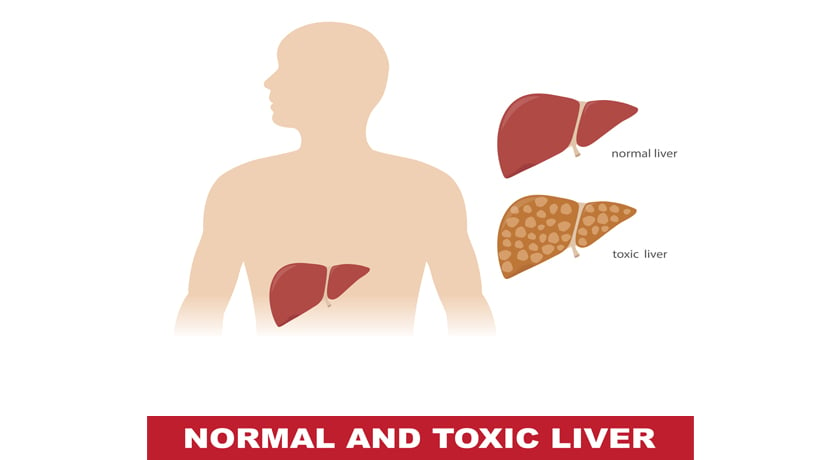The liver is the body’s primary filtration system, converting toxins into waste products, purifying your blood, and metabolizing nutrients and medications. As such a fundamental part of the body’s regulation processes, it’s highly important to keep your liver healthy and well-maintained.
When not handled with care, the liver can get blocked or clogged up with unhealthy fat. When this happens, the purifying cells are enveloped in fat so that the liver cannot filter properly. If the condition is not reversed, the liver cannot clean out the tainted blood to return to the heart. The toxic blood continues to cycle through the body—damaging the heart and the immune system, and leading to rapid aging.
Thankfully, there are fairly straightforward ways to take good care of your liver and protect yourself from more severe health issues down the road. To name just a few, do not drink alcohol in excess (women should not consume more than two drinks per day), avoid weight gain, beware of risky behaviors that put you at risk of viral hepatitis, and know risk factors (like excessive alcohol use or a family history of liver disease).
To avoid major health complications, you may need to seriously cleanse your liver if you recognize these signs.
- You notice bloating or excessive fat in the abdomen, or have unexplained weight gain.
- You experience pain or discomfort over the liver—the right upper abdominal area under the rib cage.
- You have trouble digesting fatty foods.
- You’ve had your gallbladder removed.
- You suffer from acid reflux and/or heartburn.
- You find dark spots on the skin (commonly referred to as “liver spots”).
- You feel overheating of the body and excessive perspiration.
- You have acne, rosacea or itchy and blotchy skin.
- You observe fatty yellowing lumps around the eyes.
- You test positive for high blood pressure and/or high cholesterol and triglycerides.
So how do I detoxify my liver?
Reduce your exposure to airborne toxins (smoke, gasoline, paint and glue, cleaners, and nail polish and perfumes) and harmful substances in foods and drinks (alcohol, preservatives, processed foods, unhealthy fats, dyes, pesticides, fertilizers, and contaminated water).
In exchange, add more supportive foods and nutrients to help repair the damage to your liver. Experts recommend that a large chunk of your diet (about 30 to 40 percent) should be composed of digestible, raw fruits and vegetables. Additionally, look for nutrients that support the liver, such as B-complex, C, E and natural beta-carotene. Herbs like milk thistle, turmeric, dandelion, globe artichoke and amino acids can also help the liver restore itself.
These dietary and lifestyle changes, in conjunction with help from a medical professional, can relieve the liver of the toxins that are getting in the way of its important daily functions.
Sources:
http://nourishholisticnutrition.com/ten-signals-your-liver-needs-to-detox/
https://www.hopkinsmedicine.org/health/articles-and-answers/prevention/detoxing-your-liver-fact-versus-fiction



